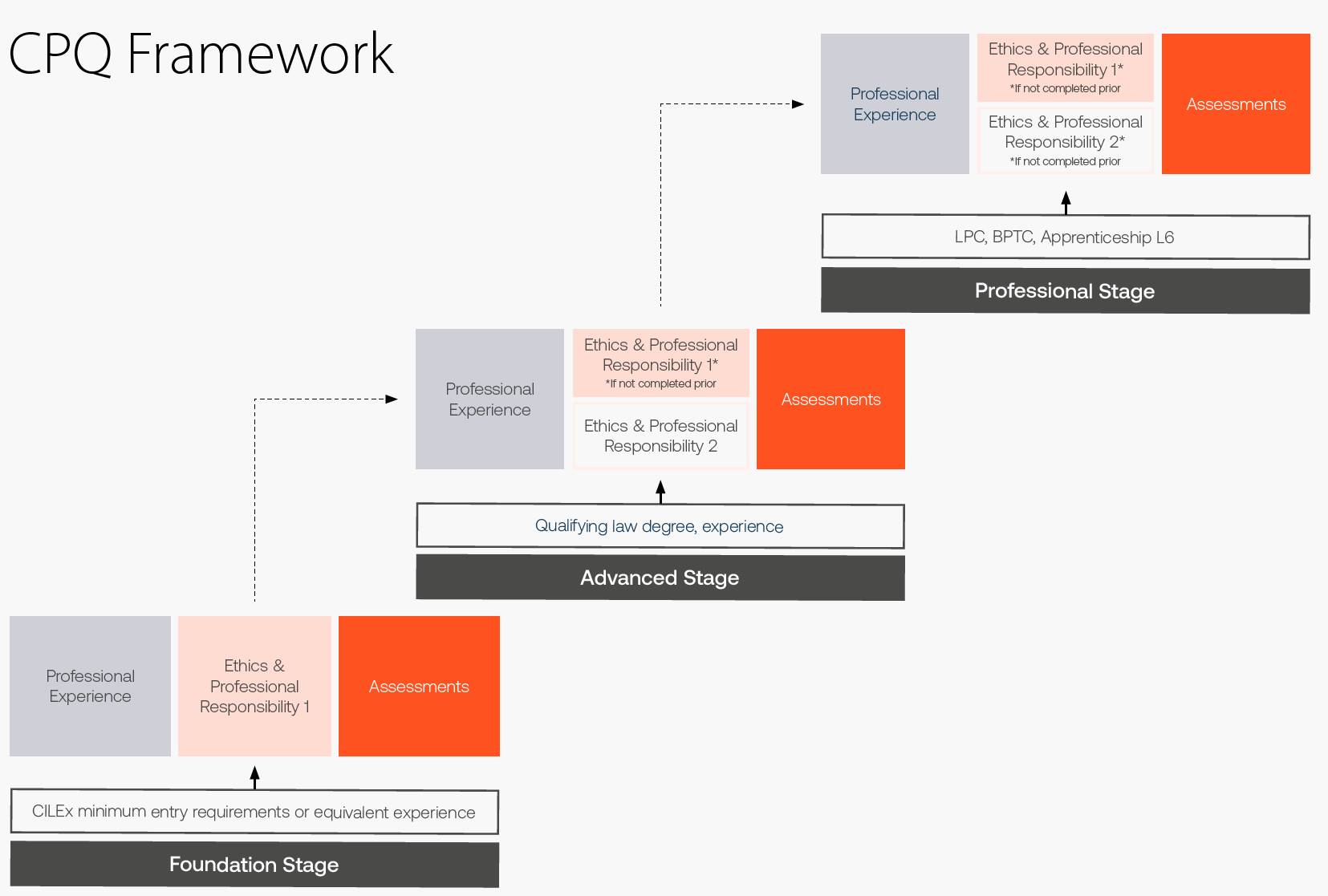CILEx
The new CILEx Professional Qualification explained
This article describes the CILEx Professional Qualification (CPQ) framework, which is a wholly new reworking of CILEx’s initial professional formation. See also previous pages of this issue.
 About the author: Chris Glennie is CPQ programme manager.In what follows, I want to go beyond the strategic drivers for the changes being made, which have been outlined by Stephen Lee, to explain how the framework fits together, how it embeds obtaining practice rights in specialist areas of law, and how it will be introduced into the market over the coming months.
About the author: Chris Glennie is CPQ programme manager.In what follows, I want to go beyond the strategic drivers for the changes being made, which have been outlined by Stephen Lee, to explain how the framework fits together, how it embeds obtaining practice rights in specialist areas of law, and how it will be introduced into the market over the coming months.
It is important to stress that before beginning work on the CPQ framework itself, we conducted extensive consultation with members and employers to explore what they expected CILEx members to understand and, more importantly, be able to do once they had completed the new qualification. From this research, a series of professional competences were developed, tested and refined in the market, and then structured into the CILEx Professional Competency Framework. This framework sets out, via five ‘pillars’, the skills and behaviours needed to operate successfully in a number of defined roles within the legal sector: from legal secretary in pillar one to partner in pillar five.
The CILEx Professional Qualification Framework
The competency framework sits at the heart of CPQ: it underpins its content and structure. As a consequence, the CPQ is structured into three stages - Foundation, Advanced and Professional - which correspond to pillars 2, 3 and 4 of the competency framework. The successful completion of each stage will indicate, to employers, that a CILEx member has demonstrated the full range of competences needed to function effectively at the appropriate professional level.
The three stages, in turn, develop progressively from one to the next, thus avoiding the challenges of the current Level 3 and Level 6 Diplomas, with the big academic gap between levels and their overlapping content. The stages, in turn, support the pathways required to obtain practice rights in specialist areas of law (an issue I shall return to later).
In a way which is genuinely innovative from the point of view of professional qualifications, the three stages consist of three integrated, but equally important, elements:
- First, the framework does not aim simply to impart core legal knowledge through a series of modules and assessments, but also to develop, and test, the skills and behaviours required to be ‘work-ready’. In addition, the framework encompasses a far wider set of commercial knowledge and skills than would normally be expected of a purely legal qualification; these are intended to equip our members with the ability to operate in a world where legal knowledge itself, while critical, is considered a prerequisite, and in which, therefore, a broader understanding of the environment in which organisations function is needed to underpin future success. The assessed modules also address the opportunities and challenges presented by legal technology, giving our members the skills needed to navigate this emerging area.
- Second, there is a greater focus throughout on ethics and professional responsibility. This ensures that those who qualify have properly internalised not only CILEx’s code of professional practice, but have a profound appreciation for, and processes for handling, the kinds of ethical and professional challenges that they may face in their careers. This learning will not only be woven through the assessed modules, but also be delivered via standalone e-learning courses that form an integral part of the qualification.
- Third, and this is the most innovative aspect of the CPQ, practical professional experience will form part of each of the framework’s three stages, and not just (as currently and as with the vast majority of professional qualifications) at the final stage, or once the final stage has been completed. This professional experience, which will be confirmed by the supervising employer or external experts, will be an additional way to demonstrate competence across the relevant CPQ standards.
To cap this, at the Professional Stage, the professional experience element is designed to meet the requirements of CILEx Regulation Limited (CRL). Completion of the CPQ will enable CRL authorisation as a Fellow and award of a practising certificate and membership status to practise as a CILEx Lawyer. In addition, due to changes to the Education Standards that are being presented to the Legal Services Board by CRL, Fellowship obtained via the CPQ will, where they are available, come with practice rights in specialist areas of law, a significant change to the current two-step process.

